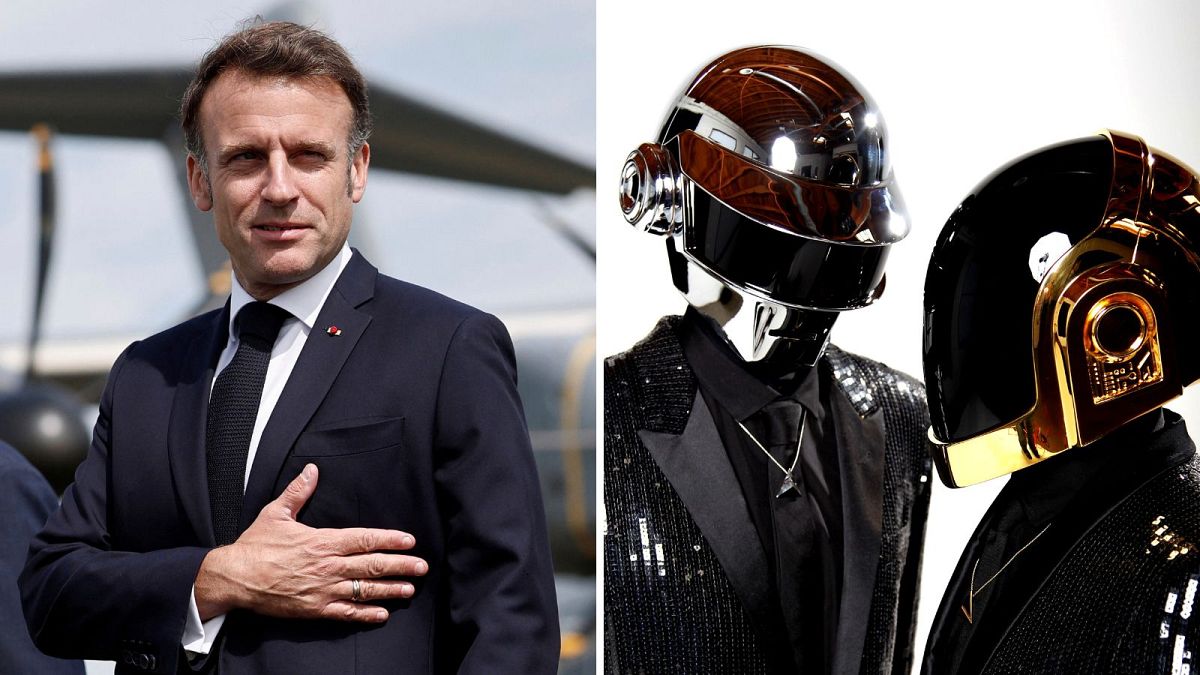

From the vibrant world of music to solemn political dramas, the latest global headlines illustrate significant shifts and statements. These stories demonstrate the complexity and interconnectedness of our global community while inviting reflection on heritage, governance, and human rights.
The French President, Emmanuel Macron, has recently voiced an ambition to see the “French touch” in electronic music recognized as a UNESCO cultural heritage. Often referred to as the birthplace of electro, France has given rise to globally influential acts such as Daft Punk. This genre, celebrated for its blending of disco, house, and pop influences, holds a significant place in the contemporary musical landscape. Macron’s advocacy could lead to a formal acknowledgment of France’s unique contribution to this global artistic field, following in the footsteps of Berlin’s techno, which has already garnered such recognition. This move is both an assertion of cultural pride and a push to preserve France’s artistic legacy for future generations.
Meanwhile, in Southern Africa, the unfolding legal drama surrounding the late Zambian President Edgar Lungu’s funeral has captured international attention. Moments before his scheduled burial in Johannesburg’s Cathedral of Christ the King, a high court judge issued an order halting the ceremony. This decision, prompted by a request from Zambia’s attorney general, is the latest episode in a long-standing dispute between Lungu and his successor, Hakainde Hichilema. Mourners, including Lungu’s grieving widow, were left in disarray, highlighting the enduring tensions even after Lungu’s passing. The episode is a reminder of how political controversies can extend beyond one’s life, leaving an indelible mark on national history.
In a significant judicial development in the United States, a federal court has mandated the return of Jordin Melgar-Salmeron, an individual wrongfully deported to El Salvador. This decision serves as a critical check on the administration’s actions, reflecting the judiciary’s role in safeguarding individual rights against procedural misconduct. Deported shortly after a court ordered a halt to his removal, Melgar-Salmeron’s case underscores the importance of adherence to legal protocols. The appellate court’s ruling not only calls for his return but also demands a detailed government explanation, reinforcing accountability principles in governance.
On the global political scene, Australian Labor MP Ed Husic’s recent remarks have sparked discussions on international relations. Breaking from his party’s usual alignment, Husic criticized Israeli military actions in Iran and expressed concerns over the erosion of a rules-based international order. His comments, which diverge from the Australian government’s support for US strikes in Iran, underscore the complexities and moral nuances in geopolitics. Husic’s viewpoint reflects a broader discourse on the need for balance and dialogue in international affairs, advocating for a thoughtful approach to conflict resolution.
Together, these stories invite readers to consider the multifaceted nature of cultural affirmation, the enduring implications of political legacies, the necessity of judicial oversight, and the importance of diversified perspectives in international relations. As we digest these global updates, they remind us of the threads that weave our world together, highlighting both shared challenges and opportunities for cooperation.
Source: {link}
